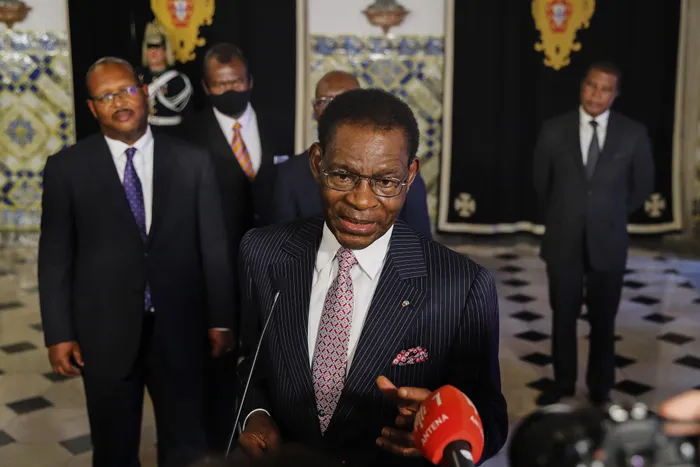Equatorial Guinea: Early results show Obiang’s ruling party has secured 99% of votes

The President of Equatorial Guinea, Teodoro Obiang Nguema. Photo: EPA-EFE/MANUEL DE ALMEIDA.
Cape Town – Preliminary election results released by Equatorial Guinea’s government on Monday showed the ruling party won more than 99% of votes counted so far in presidential, legislative, and municipal elections held on Sunday.
The president of the oil-producing African country, 80-year-old Teodoro Obiang Nguema Mbasogo, who has served as president of the country since August 1979, looks almost set for a sixth term as president of the small African country.
Early partial results showed Obiang’s ruling Democratic Party of Equatorial Guinea (PDGE) and coalition with 67 012 votes out of 67 196 counted so far, said a statement on the government website.
Nguema is facing Esono Ondo, leader of the opposition Convergence for Social Democracy party.
Out of a population of less than 2 million, about 400 000 voters were expected to cast their ballots in Sunday’s election.
Voters also cast their ballots for 100 members of the Chamber of Deputies and 55 members of the Senate.
The AU deployed an AU election observation mission to the country to observe its presidential, legislative and municipal elections.
The election observation mission included 53 members drawn from various AU member states, the permanent representatives’ committee of the AU, members of the Pan African Parliament and civil society organisations supported by a team of experts drawn from the AU commission and independent experts, the AU said in a statement last week.
According to an August IMF Country Report, the covid-19 pandemic in 2020-21, as well as the Bata explosions in 2021, which was a series of four explosions which occurred at the military barracks in the neighbourhood of Nkoantoma, a district of Bata, the largest city and commercial capital, further hurt the economy of the small central African country.
According to the IMF, prior to the pandemic, the country faced a prolonged period of depressed hydrocarbon prices and seven consecutive years of decline in real GDP.
IOL
Related Topics: